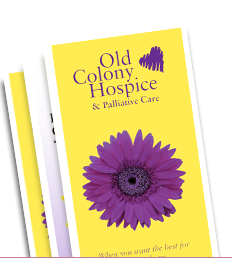Source: Kevin S. Henning, MD, FAAFP, FAAHPM and Margi Carlson, RN
Every day health care providers face the difficult task of sharing bad news with patients and their loved ones. Many of them find this work to be one of the most challenging parts of their job because they typically receive little or no training in how to most effectively communicate with patients and families, particularly when it comes to sharing bad news. The term “bad news” can encompass anything from the necessity for new medication or a new procedure to considering hospice care. In any case, the way in which this information is communicated is of utmost importance.
Although there is no evidence-based consensus on the best way to share bad news, experience suggests that structured communication is more effective than ad lib discussions. In his book “How to Break Bad News: A Guide for Health Care Professionals”, Dr. Robert Buckman proposed a six-step protocol that many find helpful when embarking on a difficult conversation. The protocol uses the pneumonic , SPIKES, to help clinicians remember the content and order of the important steps.
S---SETTING: First, ensure the setting is conducive to good communication. The essentials are privacy and comfort for the patient and family, limit distractions by turning off phones, avoid interruptions and speak to patients at their eye level.
P---PERCEPTION: Elicit the patient’s perspective of the current problem. It is unwise to share information without knowing the patient’s understanding of the circumstances.
I---INVITATION: Before sharing bad news, obtain an invitation to proceed. Patients who are in pain or experiencing symptoms may want to postpone the conversation until they are physically and emotionally ready to receive it.
K----KNOWLEDGE: Share the knowledge in small chunks and avoid using medical jargon. Stop and check frequently for understanding
E---EMPATHY: Begin to understand the impact on the patient by asking how he or she is feeling. Let them know that you understand how and why he feels that way. True empathy can have a powerful impact on the therapeutic relationship. When patients feel heard and understood by their caregivers, they are more likely to trust them and follow their advice.
S---SUMMARIZE AND STRATEGIZE: Learning difficult news can be overwhelming. Make sure you end the conversation by summarizing the information and discussing a future strategy.
For more information, please call us at: 781-341-4145
Old Colony Hospice – One Credit Union Way Randolph, MA 02368













